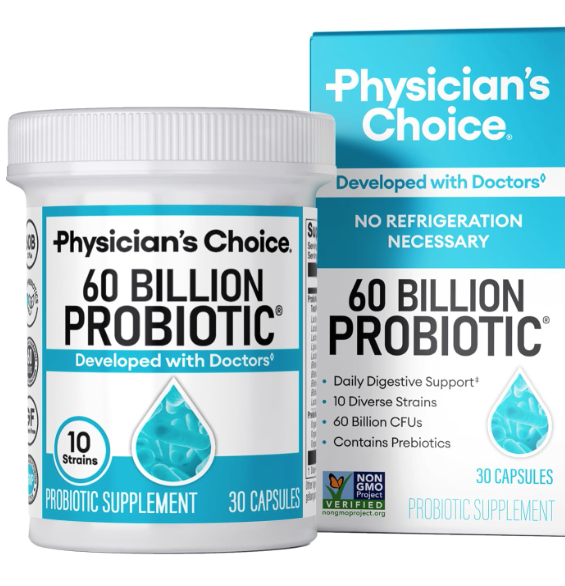
Gut Health and Wellness: Why Your Microbiome Matters
When it comes to overall health and wellness, your gut microbiome plays a much bigger role than you might think. Far beyond digestion, the trillions of bacteria living in your digestive tract influence everything from immunity and metabolism to mental health and energy levels. Understanding the importance of gut health—and how to support it—can transform your well-being from the inside out.
What Is the Gut Microbiome?
The gut microbiome is the community of trillions of bacteria, fungi, and other microorganisms living in your digestive tract. These tiny microbes help break down food, absorb nutrients, and produce essential compounds that support your health.
When the microbiome is balanced, it helps your body function at its best. But when it becomes imbalanced—a state called dysbiosis—it can lead to digestive issues, fatigue, weakened immunity, and even chronic conditions.
Why Gut Health Matters for Wellness
1. Gut Health and Digestion
Healthy gut bacteria break down complex foods, improve nutrient absorption, and reduce issues like bloating, gas, and constipation.
2. Gut Health and Immunity
Nearly 70% of your immune system resides in the gut. A strong microbiome helps defend against harmful pathogens, reduces inflammation, and supports long-term immune health.
3. Gut-Brain Connection
Your gut and brain communicate through the gut-brain axis. The microbiome produces neurotransmitters like serotonin, which affect mood, stress levels, and mental clarity. Poor gut health is often linked to anxiety, depression, and brain fog.
4. Gut Health and Metabolism
Gut bacteria influence how your body processes calories and stores fat. An unbalanced microbiome may contribute to slowed metabolism, weight gain, and insulin resistance.
Signs of an Unhealthy Gut
Wondering if your microbiome needs support? Here are some common red flags:
-
Frequent bloating, gas, or indigestion
-
Fatigue or low energy
-
Unexplained weight changes
-
Food intolerances or sensitivities
-
Brain fog or mood swings
-
Frequent colds or weakened immunity
What Poor Gut Health Feels Like
Your gut does more than digest food—it affects your energy, mood, immunity, and overall well-being. When your gut microbiome is out of balance, you may notice a variety of physical and emotional symptoms.
Common Signs of Poor Gut Health:
-
Digestive Issues: Frequent bloating, gas, constipation, diarrhea, or heartburn.
-
Low Energy & Fatigue: Feeling drained even after a full night’s sleep.
-
Brain Fog: Trouble concentrating, poor memory, or mental sluggishness.
-
Mood Changes: Irritability, anxiety, or low mood linked to gut-brain communication.
-
Food Intolerances: Discomfort after eating certain foods, even healthy ones.
-
Weakened Immunity: More frequent colds, infections, or slow healing.
-
Skin Problems: Acne, eczema, or other inflammatory skin conditions.
-
Unexplained Weight Changes: Difficulty losing or sudden gain, often linked to metabolic disruption.
In short: Poor gut health often feels like a combination of digestive discomfort, low energy, mood swings, and more subtle symptoms like cravings or skin issues. Supporting your gut with fiber, probiotics, stress management, and sleep can help restore balance and improve overall wellness.
How to Support a Healthy Gut Microbiome
Eat Fiber-Rich Foods
Fiber from fruits, vegetables, whole grains, and legumes feeds healthy gut bacteria, helping them thrive.
Include Prebiotics/ Probiotics and Fermented Foods
Foods like yogurt, kefir, sauerkraut, and kimchi introduce beneficial bacteria to your gut.
Manage Stress
Chronic stress disrupts gut balance. Practices like meditation, deep breathing, and time outdoors can help.
Limit Processed Foods and Sugar
These can feed harmful bacteria and promote inflammation in the gut.
Add Prebiotic Foods
Garlic, onions, asparagus, and bananas feed the “good” bacteria already living in your gut.
Prioritize Sleep
Quality sleep helps regulate hormones and supports gut health. Aim for 7–9 hours each night.
Stay Hydrated
Drinking enough water supports healthy digestion and helps maintain gut balance.
Move Your Body Every Day
Regular physical activity improves gut bacteria diversity and digestion.
What to Eat
-
Probiotic-Rich Foods (introduce good bacteria)
-
Yogurt (with live cultures)
-
Kefir
-
Sauerkraut
-
Kimchi
-
Miso
-
Tempeh
-
Pickles (fermented, not just in vinegar)
Prebiotic Foods (feed healthy bacteria)
-
Garlic
-
Onions
-
Leeks
-
Asparagus
-
Bananas
-
Jerusalem artichokes
-
Chicory root
-
Apples
Fiber-Rich Foods
-
Whole grains (oats, barley, brown rice)
-
Legumes (beans, lentils, chickpeas)
-
Leafy greens (spinach, kale)
-
Berries (blueberries, raspberries)
-
Nuts and seeds (almonds, chia seeds, flaxseeds)
Other Supportive Foods
-
Fatty fish (salmon, mackerel) – anti-inflammatory
-
Polyphenol-rich foods (green tea, cocoa, berries)
-
What to Avoid
-
Highly processed foods (fast food, packaged snacks)
-
Sugary drinks and sodas
-
Artificial sweeteners (aspartame, sucralose)
-
Refined carbohydrates (white bread, pastries, white rice)
-
Excess red and processed meats
-
Fried foods and trans fats
-
Excess alcohol

How Good Gut Health Supports Mental and Physical Wellness
Your gut isn’t just about digestion—it’s a central hub that influences your whole body and mind. A balanced gut microbiome has far-reaching effects on both mental and physical wellness.
Good gut health fuels both mind and body. By nurturing your microbiome with fiber-rich foods, probiotics, prebiotics, sleep, and stress management, you support emotional resilience, energy, immunity, and long-term wellness.
Physical Wellness Benefits
-
Optimized Digestion: Efficient breakdown of food improves nutrient absorption and reduces bloating, gas, and constipation.
-
Stronger Immunity: Up to 70% of your immune system resides in the gut. A balanced microbiome strengthens defenses against illness and inflammation.
-
Metabolic Support: Healthy gut bacteria influence energy use, fat storage, and blood sugar regulation, supporting metabolism and weight management.
-
Reduced Inflammation: A balanced gut helps control systemic inflammation, which is linked to chronic conditions like heart disease, diabetes, and autoimmune disorders.
Mental Wellness Benefits
-
Improved Mood: Healthy gut bacteria produce neurotransmitters like serotonin, which help regulate mood and reduce anxiety.
-
Better Focus & Clarity: A balanced microbiome supports the gut-brain axis, improving cognitive function and mental clarity.
-
Reduced Stress Response: A healthy gut helps regulate cortisol, the body’s stress hormone, reducing feelings of overwhelm and tension.




Add comment
Comments